- Home
- Chris Ryan
Hit List
Hit List Read online
Table of Contents
Cover
About the Author
Also available by Chris Ryan
Hit List
Copyright
Acknowledgements
Dedication
Prologue
Chapter One
Chapter Two
Chapter Three
Chapter Four
Chapter Five
Chapter Six
Chapter Seven
Chapter Eight
Chapter Nine
Chapter Ten
Chapter Eleven
Chapter Twelve
Chapter Thirteen
Chapter Fourteen
Chapter Fifteen
Chapter Sixteen
Chapter Seventeen
ABOUT THE AUTHOR
Chris Ryan was born near Newcastle in 1961. He joined the SAS in 1984. During his ten years there he was involved in overt and covert operations and was also Sniper team commander of the anti-terrorist team. During the Gulf War, Chris was the only member of an eight-man team to escape from Iraq, of which three colleagues were killed and four captured. It was the longest escape and evasion in the history of the SAS. For his last two years he has been selecting and training potential recruits for the SAS.
He wrote about his experiences in the bestseller The One That Got Away which was also adapted for screen. He is also the author of the bestsellers Stand By, Stand By, Zero Option, The Kremlin Device, Tenth Man Down, The Hit List, The Watchman, Land of Fire, Greed, The Increment, Blackout, Ultimate Weapon and Strike Back. Chris Ryan’s SAS Fitness Book and Chris Ryan’s Ultimate Survival Guide are also published by Century.
He lectures in business motivation and security and is currently working as a bodyguard in America.
Also available by Chris Ryan
Non-fiction
The One That Got Away
Chris Ryan’s SAS Fitness Book
Chris Ryan’s Ultimate Survival Guide
Fiction
Stand By, Stand By
Zero Option
The Kremlin Device
Tenth Man Down
The Hit List
The Watchman
Land of Fire
Greed
The Increment
Blackout
Ultimate Weapon
Strike Back
In the Alpha Force Series
Survival
Rat-Catcher
Desert Pursuit
Hostage
Red Centre
Hunted
Black Gold
Blood Money
Fault Line
Untouchable
In the Code Red Series
Flash Flood
Wildfire
Outbreak
HIT LIST Chris Ryan
This ebook is sold subject to the condition that it shall not, by way of trade or otherwise, be lent, resold, hired out or otherwise circulated without the publisher’s prior consent in any form (including any digital form) other than this in which it is published and without a similar condition including this condition being imposed on the subsequent purchaser.
Epub ISBN: 9781409035428
Version 1.0
www.randomhouse.co.uk
Reissued in the United Kingdom by Arrow Books in 2008
9 10
Copyright © Chris Ryan, 2000
Chris Ryan has asserted his right under the Copyright, Designs and Patents Act, 1988 to be identified as the author of this work.
This novel is a work of fiction. Names and characters are the product of the author’s imagination and any resemblance to actual persons, living or dead, is entirely coincidental
First published in the United Kingdom in 2000 by Century First published in paperback in 2001 by Arrow Books
Arrow Books
The Random House Group Limited
20 Vauxhall Bridge Road, London, SW1V 2SA
Addresses for companies within The Random House Group Limited can be found at: www.randomhouse.co.uk/offices.htm
The Random House Group Limited Reg. No. 954009
www.rbooks.co.uk
A CIP catalogue record for this book is available from the British Library
ISBN 9780099460145
ACKNOWLEDGEMENTS
All the usual suspects, Barbara, Mark, Luke, Hannah and all the rest of the team at Century.
To Sarah
If you believe in the light, it’s because of the darkness
If you believe in the truth, it’s because of their lies
If you believe in God, then you must believe in the DEVIL
PROLOGUE
Tuesday 5 November 1991
Eastern Atlantic, due South of Gran Canaria
The two men surfaced noiselessly. Raising their diving masks they scanned the area around them. Nothing, only the pale bulk of the Lady Ghislaine and the soft slap of the sea against her hull. It was 4.30am, and although no hint of dawn showed at the horizon both men knew that time was limited.
As they watched, a dark figure showed for a moment against the dimly illuminated windows of the stateroom. Moments later a man appeared from the stern door, a white dressing gown belted around his considerable waist. Clearly restless, he stood at the rail for several minutes. The night air appeared to offer him no relief, however, for after a brief circuit of the stern deck he turned abruptly on his heel and went back inside.
In the water the men glanced at each other. The older of the two, his features streaked and obscured by camouflage cream, raised a hand above the surface and tapped the armoured glass face of his watch. The younger man nodded. As one, they moved towards the yacht’s stern. Below them, motionless and invisible, waited the two-man Odyssea submarine in which, four hours earlier, they had commenced their silent journey.
It had been a long stalk, but not a difficult one. The word ‘yacht’ as applied to the Lady Ghislaine was a serious understatement – if she had been in commercial ownership she would have been called a cruise liner. She had five gleaming decks, weighed 430 tons, and was over 150 feet in length. Her swimming pool could quite comfortably have accommodated six topless models dressed as mermaids, and indeed – to the raucous delight of an invited party of Daily Mirror executives — had once done just that. She was, to say the least, a visible target. And an unsuspecting one. No one was manning her radar that night.
The Lady Ghislaine had set sail from Gibraltar on the Thursday. It had taken her crew two days to sail to Madeira, where the yacht had made anchor at Funchal. There, operatives from London were already in place and working on their tans. They had tailed the target to Desertas beach, where he swam without apparent pleasure, and later to the Central Casino, where he lost a little over £9000 sterling at blackjack.
On Sunday, the yacht had sailed towards Tenerife, reaching Darcene Pesquera at 10.00am the following day. Within the hour it had set off again southwards – the target remaining aboard throughout. His non-appearence was hardly surprising – by then the international press corps had learned what the target himself had known for some time: that his business empire was on the verge of meltdown. The Swiss bank he used was threatening to call in the fraud squad. His creditors were beginning to panic.
That was the point at which London had put the two-man diving team on stand-by, when they’d flown the miniature submarine into Layounne on the Moroccan coast.
By Monday evening the Lady Ghislaine was back in Santa Cruz. The target himself was ashore, eating pil-pil in the dining room at the Hotel Mencey. There had been a suggestion that the hit might be carried out right there and then — the concern being that he might take a car down to Los Christianos where the Gulf-stream jet was fuelled and ready to fly him back to London. In the event, however, the hit team held back, and to their reli
ef the target returned to the yacht after his meal and ordered the crew to set sail. By then a concealed transmitting device was on board, and from the moment they left port the Lady Ghislaine’s course was relayed via geo-positioning satellites to the mission’s command vessel five miles to the north.
The final go-ahead came from London at 11.55. It was a calm moonless night, and the Odyssea submarine slipped away from the command vessel around mid-night. The wet-sub was a customised craft, built in Florida and refitted at a secret base on the East Anglian coast. It carried 500 cubic feet of onboard oxygen and its powerful batteries enabled it to cover up to twelve miles at a rate of two knots per hour. The wet-sub wouldn’t have won any races, but it was perfectly adapted to its primary function of covert naval approach. Twelve miles was well outside the target’s detection range.
Using a suction device, the younger of the two divers tethered the Odyssea’s tow-line to the yacht. None of the crew seemed to be on watch, he noticed – perhaps the target had insisted that the decks be cleared for his own use. Shrugging off his oxygen-tanks and regulator, moving with the silence and fluency of long practice, he locked it into the specially adapted housing behind the Odyssea’s left-hand seat. Beside him, his partner lowered his own gear to the right-hand housing.
From a pouch round his waist the older man removed two magnetic clamps. A cord ran between these clamps and from this he suspended a heavy equipment bag and his fins. Watching as his partner rid himself of his own fins, positioned a collapsible caving ladder against the stern rail and silently shinned up it, the older man opened the equipment bag. Taking care to avoid the percussion of steel on steel, he withdrew two MP5 sub-machine guns, extended their folding stocks, and passed them up to his waiting colleague. Crouching on the varnished teak deck the men prepared their weapons, wincing at the oily clicks as the twenty-round magazines snapped home. Ears straining for the slightest sound – a footfall, an opening door – they drew back and locked the cocking levers.
The target shivered and pulled the towelling dressing gown more tightly around himself. He’d just phoned the bridge to ask for the air-conditioning to be adjusted by a couple of degrees. It was still warm outside, despite the time, but here in the stateroom the air had become uncomfortably cold. It was too cold to sleep, and sleep was what he craved most. A few hours’ escape from the pressure – from the desperate worry of his debts, from the inexorable progress of the fraud investigation, from the certainty that the coming share sell-offs would leave his empire in ruins.
He was still one of the most powerful men in the world, but tonight he knew that the end was close. Part of him wished that this journey could go on for ever – just the sea and the sky and the soft thrum of the engines. But he knew that all of that would end within hours. Instead he would be flying back to London for one desperate last stand. Like Custer, he thought wryly – and look what happened to Custer.
Approaching his dressing-table, Maxwell bowed and examined his hair. The roots were growing out again – a centimetre of iron-grey now showed beneath the black dye. Would the law courts have his scalp as well as his dignity? There was little chance he could salvage anything now. If he was lucky, he might escape with a couple of million. And the house, perhaps. And maybe a couple of cars. Living expenses? He shrugged. He was bored with restaurant cooking, and he had all the Savile Row suits he’d need to see him out. But there would be no more helicopters, no more chummy Pall Mall lunches with ministers, no more Fleet Street boardrooms falling silent as he entered. Face it, he told himself, there was a better than even chance he’d have to stand trial, and maybe even go to jail. He’d done things that no lawyer – not even the most urbane of silks – could possibly defend. Face it, he repeated, it was over. This was the endgame, the king brought down by a battalion of pawns. Checkmate.
Or was it? Was his last desperate gambit going to pay off? Was the wildest card he’d ever played going to win the trick for him?
There was a light knock on the door. Some problem with the air-conditioning, he supposed. And he’d told the captain – ordered him, dammit – that he wasn’t to be disturbed. Wearily he made his way to the door.
It crashed against him as he turned the handle. Next moment it had been closed behind him and he was being dragged back into the room. He tried to struggle, but his arms were pinned in an iron grip behind his back. There was a crackling sound, and an excruciating pain jolted through his kidneys. He doubled up, retching, and as he tried feebly to straighten lost control of his bladder, warm urine coursed down his leg.
Dizzy with pain and shame, his throat stinging with bile, he sank to a sitting position on the bed. The dressing gown had fallen open, but he was too shocked to cover himself.
The two figures withdrew to the centre of the pale blue Isphahan carpet. Wiping his smarting eyes and running nose with his sleeve, Maxwell saw to his astonishment that both wore black neoprene wetsuits and carried automatic weapons slung in chest harnesses. Their faces were tiger-striped with camouflage cream. The younger man carried some sort of electric prod.
‘Mr Maxwell,’ said the older man, his eyes expressionless. ‘Please sit still. This is your last warning. If you call for help or or try to escape, we will hurt you very badly indeed. To avoid that, just sit still and answer my questions. Do you understand?’
Robert Maxwell nodded. Anger was slowly beginning to replace humiliation. He drew the dressing gown closed around himself. Who the hell were these people? He had any amount of corporate enemies, but none of them would try a stunt like this. Were they Romanians? Mossad? He spoke quickly in Hebrew: ‘Ma perush hadaver haze?’
The two men looked at him blankly. The older man stepped forward. ‘Mr Maxwell, we don’t have much time. We need answers to our questions, and we need them right away. I think you know who we are.’
‘I haven’t the first idea who you are – and nor, for that matter, have I got any cash in this room. You’re welcome to my credit cards, though – my wallet’s in the pocket of that—’
‘Mr Maxwell, you know who we are.’
The voice was anonymous, but unmistakably that of a born English speaker. A faint burr – West Country? Bristol? – but overlaid by the flatter vowels of the Thames estuary. Could they be MI6? Surely not. If those people wanted information from him they just had to pick up the phone, and they knew it.
‘Mr Maxwell, I am instructed to tell you that Dietrich Wegner wants his property back.’
That name. After all these years, that name. The jolt of understanding which slammed through Robert Maxwell at that moment was worse than the electronic prod. He was as good as dead. He looked at them. Saw they knew that he knew.
Seeing Maxwell’s shoulders slump, confident that the last vestiges of fight had departed him, the younger man returned the prod to his belt. Beside him the older man unzipped a waterproof pouch that he was carrying round his neck. The silence between the stateroom’s three occupants was intimate, almost conspiratorial.
How would they do it? Maxwell wondered. Surely they wouldn’t use their weapons? It would make a godawful racket and they’d have to kill the entire crew. But a glance at the tiger-striped faces above him told him that, if necessary, they would do just that. By nightfall they’d be the other side of the Channel, probably watching Match of the Day over a couple of Special Brews. My God, he thought. If there was ever a lethal race put on this Earth it was the English.
He knew what they wanted, of course. He knew what they were looking for. He considered stalling and playing for time, but realised that the longer the whole charade lasted, the greater the danger to the rest of those aboard. Any crew members up and about when the men left the ship would be gunned down. And if one died, the rest would have to go too; there could be no witnesses. No, better to go quietly, hope it was fast, and limit the deaths to his own. The fear had gone now – all that was left was a quiet surprise that it could all end like this.
The older man glanced at his watch and out of the curtained wind
ow.
So that was how it was to be, thought Maxwell. The sea. No thumb to the jugular, no punch of silenced bullets, just the cold waters of dawn. And these two anonymous soldiers of his adopted country drawing him down to the darkness and the end of all worry.
‘Mr Maxwell,’ the older man said, ‘before we bring this to a close, I’d like you to open your safe and give me the photographs you keep inside.’
Maxwell didn’t move.
Seeing his hesitation the younger man’s hand wandered towards the electric prod.
Maxwell walked heavily across the pale blue carpet, lifted down a framed Private Eye cartoon of himself as ‘Cap’n Bob’, and spun the dial of a small wall-safe. Taking out a sheaf of fragile-looking black-and-white photographs he handed them to the older man who placed them in the waterproof pouch.
‘Close the safe. Put the picture back.’
He did as he was bid.
‘Thank you, Mr Maxwell. Now I’m going to ask you to take off your robe.’
Slowly, Maxwell obeyed. He touched the appliquéd blue ‘Lady Ghislaine’ on the breast pocket of the dressing gown, gave the ghost of a wink to the photograph of the two boys.
‘Are you ready?’
Maxwell looked around him, at the walnut panelling, the Louis Quinze escritoire, the luxurious fixtures and fittings. He’d survived the war, he’d survived the Nazis, he’d built and lost an empire. Now, naked, he stood before his killers.
What a story, he thought. What a front page!
He dictated his last headline.
‘I’m ready,’ he said.
ONE
The wind, a hard north-easterly from the Chilterns, picked up once again. It scoured the valley and whipped through the pines which stood guard over the 1st XV rugby pitch, flattening the players’ shirts to their bodies. The light was fading; the towers and parapets of Bolingbroke’s School were an indistinct grey on the skyline.

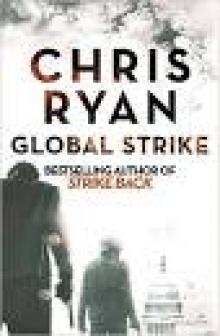 Global Strike
Global Strike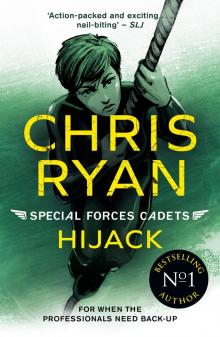 Hijack
Hijack Special Forces Cadets 2
Special Forces Cadets 2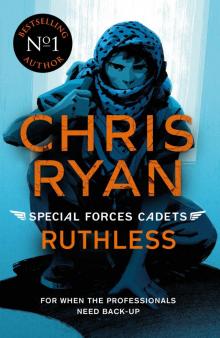 Ruthless
Ruthless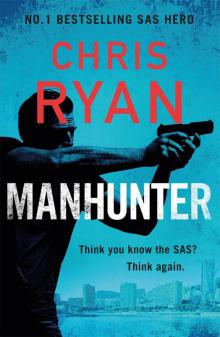 Manhunter
Manhunter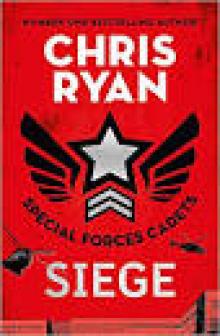 Special Forces Cadets 1
Special Forces Cadets 1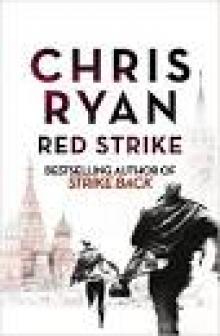 Red Strike
Red Strike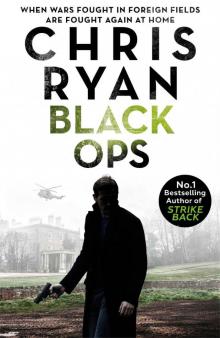 Black Ops
Black Ops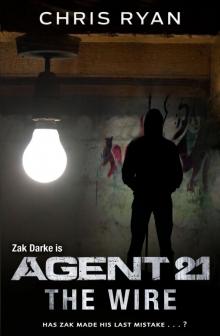 Agent 21: The Wire
Agent 21: The Wire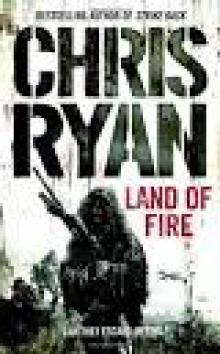 Land of Fire
Land of Fire Alpha Force: Fault Line
Alpha Force: Fault Line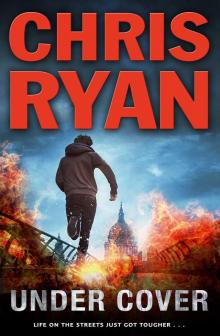 Under Cover (Agent 21)
Under Cover (Agent 21)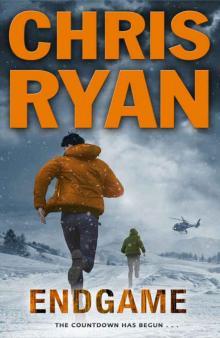 Endgame (Agent 21)
Endgame (Agent 21) Red Centre
Red Centre Blackout
Blackout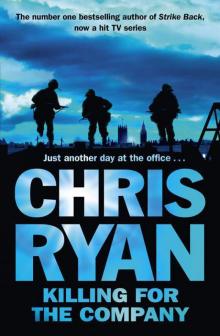 Killing for the Company
Killing for the Company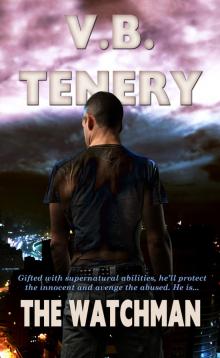 The Watchman
The Watchman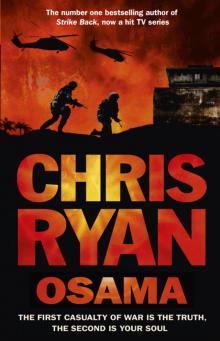 Osama
Osama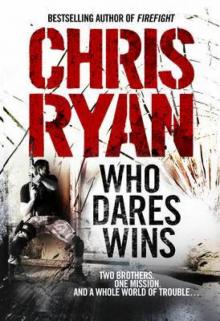 Who Dares Wins
Who Dares Wins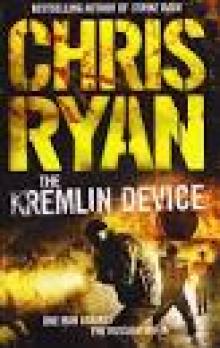 The Kremlin Device
The Kremlin Device Hunter Killer
Hunter Killer Alpha Force: Untouchable
Alpha Force: Untouchable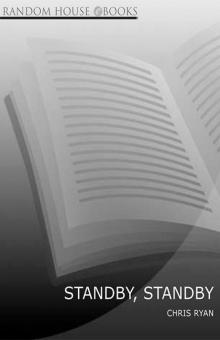 Stand By Stand By
Stand By Stand By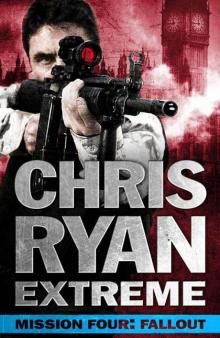 Chris Ryan Extreme: Hard Target: Mission Four: Fallout
Chris Ryan Extreme: Hard Target: Mission Four: Fallout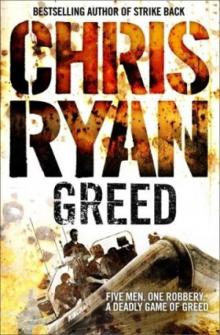 Greed mb-1
Greed mb-1 Alpha Force: Desert Pursuit
Alpha Force: Desert Pursuit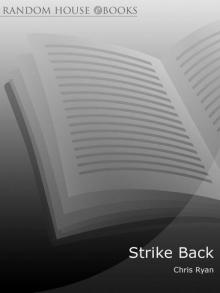 Strike Back
Strike Back Greed
Greed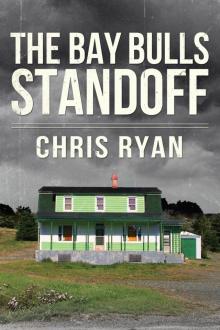 The Bay Bulls Standoff
The Bay Bulls Standoff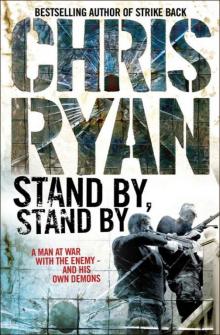 Stand By, Stand By gs-1
Stand By, Stand By gs-1 Outbreak
Outbreak Hunted
Hunted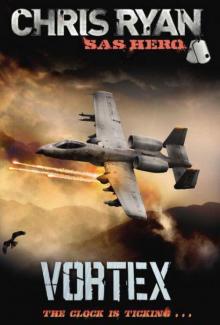 Vortex cr-4
Vortex cr-4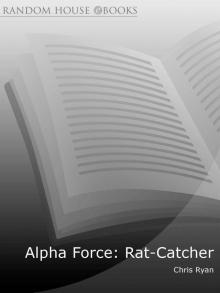 Rat-Catcher
Rat-Catcher Vortex
Vortex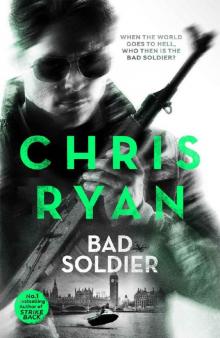 Bad Soldier
Bad Soldier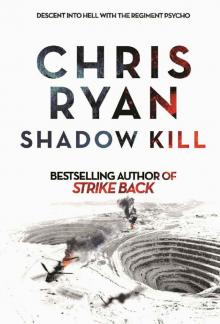 Shadow Kill: A Strikeback Novel
Shadow Kill: A Strikeback Novel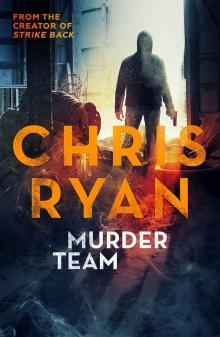 Murder Team (Kindle Single)
Murder Team (Kindle Single) One Good Turn
One Good Turn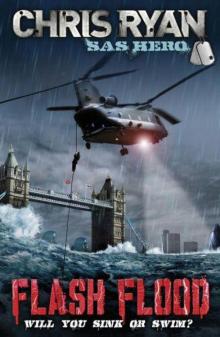 Flash Flood cr-1
Flash Flood cr-1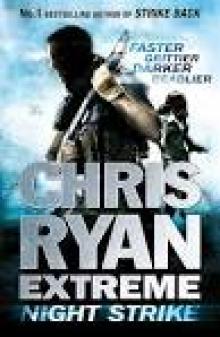 Night Strike
Night Strike Wildfire
Wildfire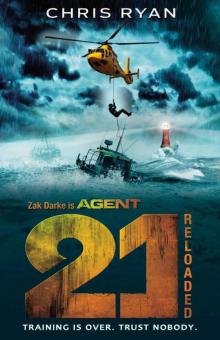 Agent 21: Reloaded: Book 2
Agent 21: Reloaded: Book 2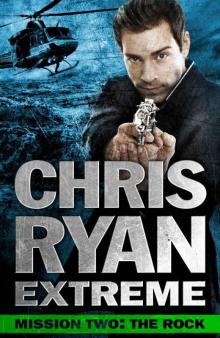 Chris Ryan Extreme: Hard Target: Mission Two: The Rock
Chris Ryan Extreme: Hard Target: Mission Two: The Rock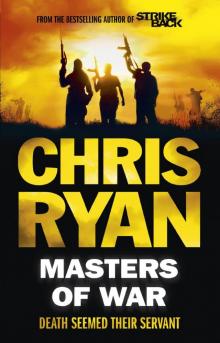 Masters of War
Masters of War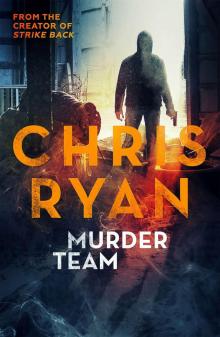 Murder Team
Murder Team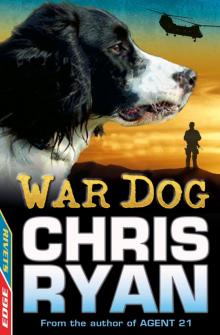 War Dog
War Dog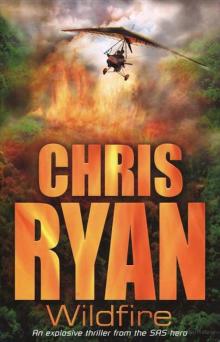 Wildfire cr-2
Wildfire cr-2 Survival
Survival The One That Got Away - Junior edition
The One That Got Away - Junior edition The Hit List
The Hit List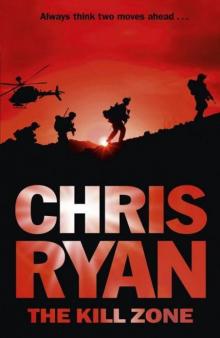 The Kill Zone
The Kill Zone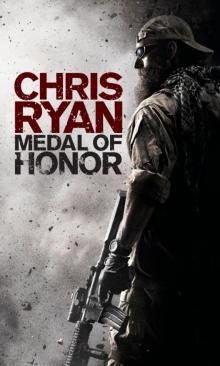 Medal of Honor
Medal of Honor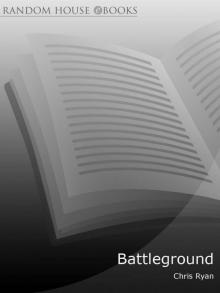 Battleground
Battleground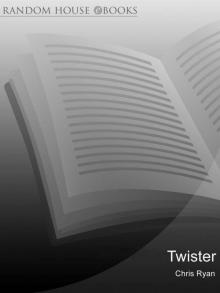 Twister
Twister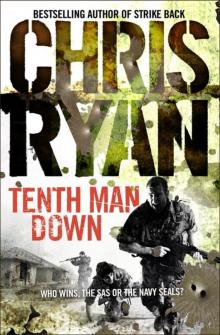 Tenth Man Down gs-4
Tenth Man Down gs-4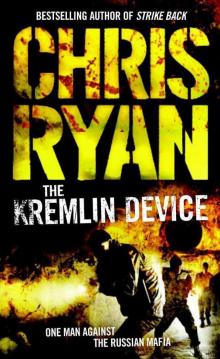 The Kremlin Device gs-3
The Kremlin Device gs-3 Hostage
Hostage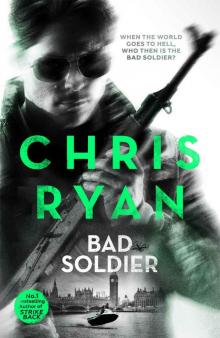 Bad Soldier: Danny Black Thriller 4
Bad Soldier: Danny Black Thriller 4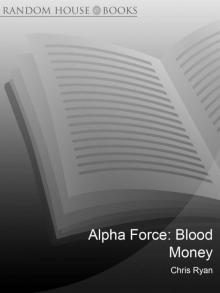 Alpha Force: Blood Money
Alpha Force: Blood Money Firefight
Firefight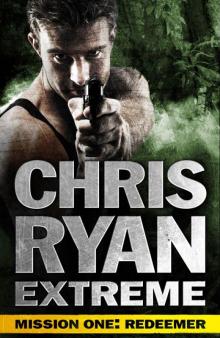 Chris Ryan Extreme: Hard Target: Mission One: Redeemer
Chris Ryan Extreme: Hard Target: Mission One: Redeemer Hit List
Hit List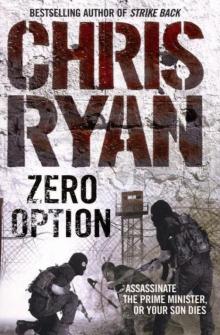 Zero Option gs-2
Zero Option gs-2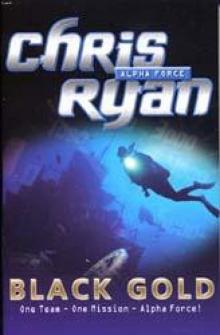 Black Gold
Black Gold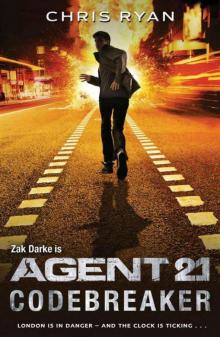 Agent 21: Codebreaker: Book 3
Agent 21: Codebreaker: Book 3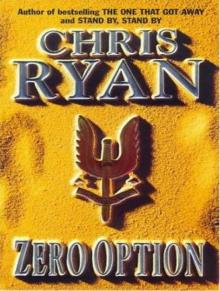 Zero Option
Zero Option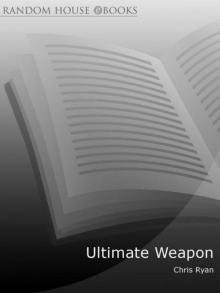 Ultimate Weapon
Ultimate Weapon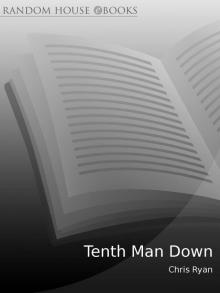 Tenth Man Down
Tenth Man Down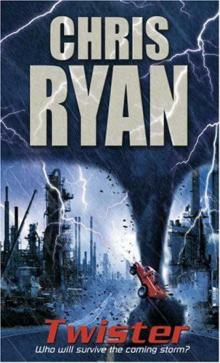 Twister cr-5
Twister cr-5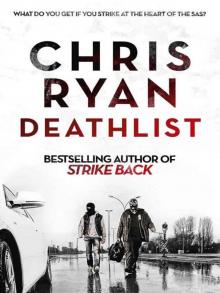 Deathlist
Deathlist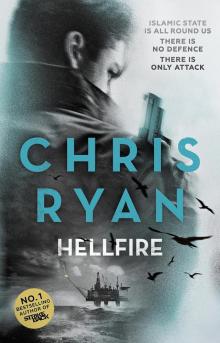 Hellfire
Hellfire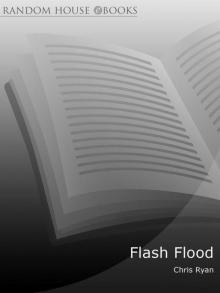 Flash Flood
Flash Flood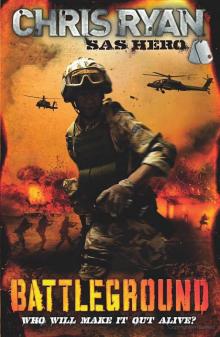 Battleground cr-6
Battleground cr-6 The Increment
The Increment